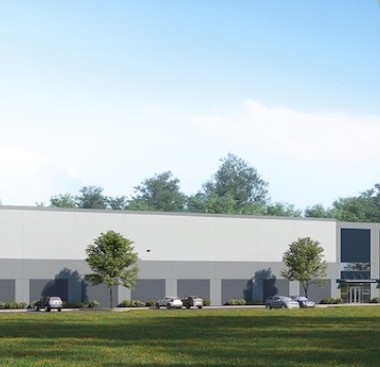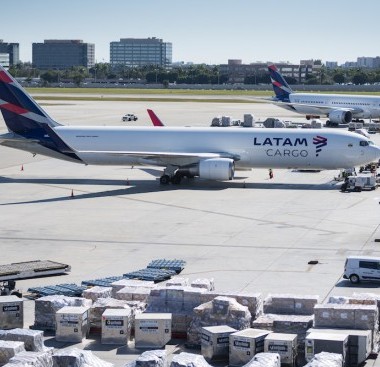Freight Software for Enterprise Level Business
Apr 25, 2024Freight software for enterprise level business is becoming increasingly important in today's global economy. With the rise of e-commerce and the need for fast, efficient shipping, companies are turning to technology to help them manage their supply chain operations. Freight software is designed to streamline the process of shipping goods, from managing inventory to tracking shipments in real-time.
One of the key benefits of freight software is its ability to automate many of the tasks involved in shipping. This can include generating shipping labels, tracking shipments, and managing inventory. By automating these tasks, companies can save time and reduce the risk of errors, which can lead to costly delays and lost revenue.
Another advantage of freight software is its ability to provide real-time visibility into the supply chain for both the company and dedicated customs agents alike. This allows companies to track shipments from the moment they leave the warehouse to the moment they arrive at their destination. With this level of visibility, companies can quickly identify and address any issues that arise, such as delays or lost shipments. Overall, freight software is a powerful tool that can help enterprise level businesses stay competitive in today's fast-paced economy.
Overview of Freight Software Solutions
Freight software solutions are designed to help businesses manage their transportation operations more efficiently and effectively. These solutions are particularly important for enterprise-level businesses that deal with large volumes of freight and complex supply chains. In this section, we will provide an overview of the key features of freight software solutions and the benefits they offer to enterprise-level businesses.
Key Features
Freight software solutions typically offer a range of features designed to help businesses manage their transportation operations. Some of the key features include:
- Shipment tracking: Freight software solutions enable businesses to track their shipments in real-time, providing visibility into the location and status of each shipment.
- Carrier management: Freight software solutions help businesses manage their relationships with carriers, including selecting carriers, negotiating rates, and managing contracts.
- Freight optimization: Freight software solutions use algorithms to optimize freight routes and consolidate shipments, reducing transportation costs and improving efficiency.
- Documentation management: Freight software solutions help businesses manage the various documents associated with transportation operations, including bills of lading, customs documents, and invoices.
Benefits for Enterprise-Level Businesses
Freight software solutions offer a range of benefits to enterprise-level businesses, including:
- Cost savings: By optimizing freight routes and consolidating shipments, freight software solutions can help businesses reduce transportation costs.
- Improved efficiency: Freight software solutions streamline transportation operations, reducing the time and resources required to manage shipments.
- Enhanced visibility: Freight software solutions provide real-time visibility into the location and status of each shipment, enabling businesses to respond quickly to any issues that arise.
- Better decision-making: Freight software solutions provide businesses with data and analytics that can be used to make more informed decisions about transportation operations.
Comparative Analysis of Top Freight Software
Software Scalability
When it comes to software scalability, the top freight software solutions are designed to handle the needs of enterprise-level businesses. Some of the most scalable software options include SAP Business Intelligence Software, Oracle Transportation Management, and JDA Transportation Management. These solutions are designed to handle large volumes of freight and can easily scale up or down depending on the needs of the business.
Integration Capabilities
Integration capabilities are also an important consideration when choosing a freight software solution. The top options on the market, such as MercuryGate TMS, Kuebix TMS, and Descartes TMS, offer a wide range of integration options with other business systems. These integrations can include ERP systems, warehouse management systems, and more. This allows for a seamless flow of data between systems and can help to streamline operations.
Cost Efficiency
Cost efficiency is a key concern for any business, and freight software is no exception. The top freight software solutions, such as Cerasis, Freightview, and Shipwell, offer cost-efficient options for businesses of all sizes. These solutions offer a range of pricing options, including pay-per-use and monthly subscription models. Additionally, they offer features such as automated carrier selection and rate shopping to help businesses save money on their freight costs.
Overall, when comparing top freight software solutions, businesses should consider factors such as software scalability, integration capabilities, and cost efficiency. By carefully evaluating these factors, businesses can choose a solution that meets their specific needs and helps to streamline their freight operations.
SAP Software for Freight Management
SAP is a comprehensive freight management software that offers end-to-end solutions for enterprise-level businesses. It provides a centralized platform for managing logistics operations, including transportation planning, execution, and monitoring.
Analytics
SAP software for freight management offers powerful analytics capabilities that enable businesses to gain insights into their supply chain operations. The software provides real-time visibility into shipment status, delivery times, and other critical metrics. This helps businesses to identify bottlenecks and inefficiencies in their logistics operations and take corrective actions.
Reporting Dashboards
SAP software for freight management also provides reporting dashboards that allow businesses to track their logistics performance over time. The software offers customizable reports that can be tailored to meet specific business needs. This helps businesses to make data-driven decisions and optimize their logistics operations.
Fleet Management
SAP software for freight management also offers fleet management capabilities that enable businesses to manage their transportation assets efficiently. The software provides a centralized platform for managing vehicle maintenance, scheduling, and tracking. This helps businesses to reduce downtime and improve asset utilization.
Innovative Technologies in Freight Software
Freight software for enterprise-level businesses has seen a surge in innovative technologies that have transformed the logistics industry. These technologies have improved the efficiency, accuracy, and speed of freight operations, resulting in better customer service and increased profits for businesses. Here are some of the most innovative technologies in freight software:
Artificial Intelligence
Artificial Intelligence (AI) has revolutionized the logistics industry by providing predictive analytics, route optimization, and demand forecasting. AI-powered freight software can analyze vast amounts of data and provide insights that enable businesses to make informed decisions. For instance, AI can predict the demand for a particular product and optimize the delivery route to reduce transportation costs. Additionally, AI can help businesses identify potential risks and mitigate them before they occur.
Blockchain
Blockchain technology has the potential to transform the freight industry by providing end-to-end visibility and transparency. Blockchain enables the secure sharing of data across different stakeholders, including shippers, carriers, and customers. This technology can help reduce fraud, increase accountability, and improve efficiency in freight operations. For instance, blockchain can provide real-time tracking of shipments, reduce paperwork, and automate the payment process.
IoT Integration
IoT (Internet of Things) integration has enabled businesses to track and monitor their shipments in real-time. IoT sensors can be attached to freight containers, trucks, and other equipment to provide real-time data on their location, temperature, humidity, and other parameters. This data can help businesses optimize their supply chain, reduce inventory costs, and improve customer service. For instance, IoT integration can provide real-time alerts on the condition of the goods being transported, enabling businesses to take corrective action if necessary.
Similar Stories
John Deere recognizes Ascent 9th consecutive time as partner-level supplier
This marks the ninth consecutive time the company has been awarded this recognition...
View ArticleFTR reports preliminary North American Class 8 Net Orders for April at 14,000 Units
FTR reported that Class 8 preliminary net orders for April came in at 14,000 units, down 28% from March but up 12.5% y/y. Class 8 orders for the past 12…
View Article
Universal Postal Union’s standards mitigate supply chain risks
View Article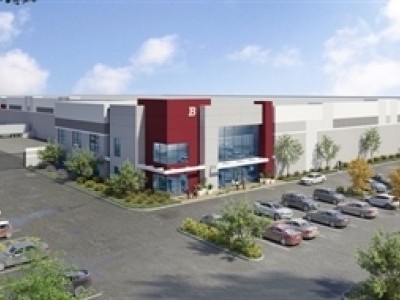
Cushman & Wakefield arranges $125 million financing for fundrise for prominent 1.1MSF multi-market industrial portfolio in Southwest US
View Article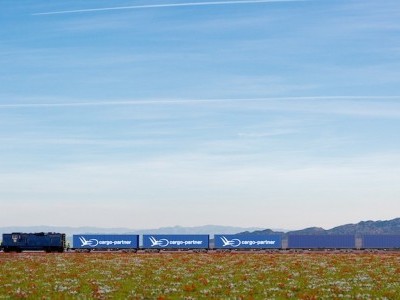
cargo-partner extends collaboration with HHLA Pure for CO₂-neutral transport within Europe
View Article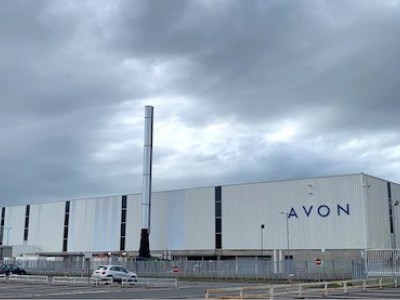
Arvato takes over Avon logistics center in UK
View ArticleGet the most up-to-date trending news!
SubscribeIndustry updates and weekly newsletter direct to your inbox!



